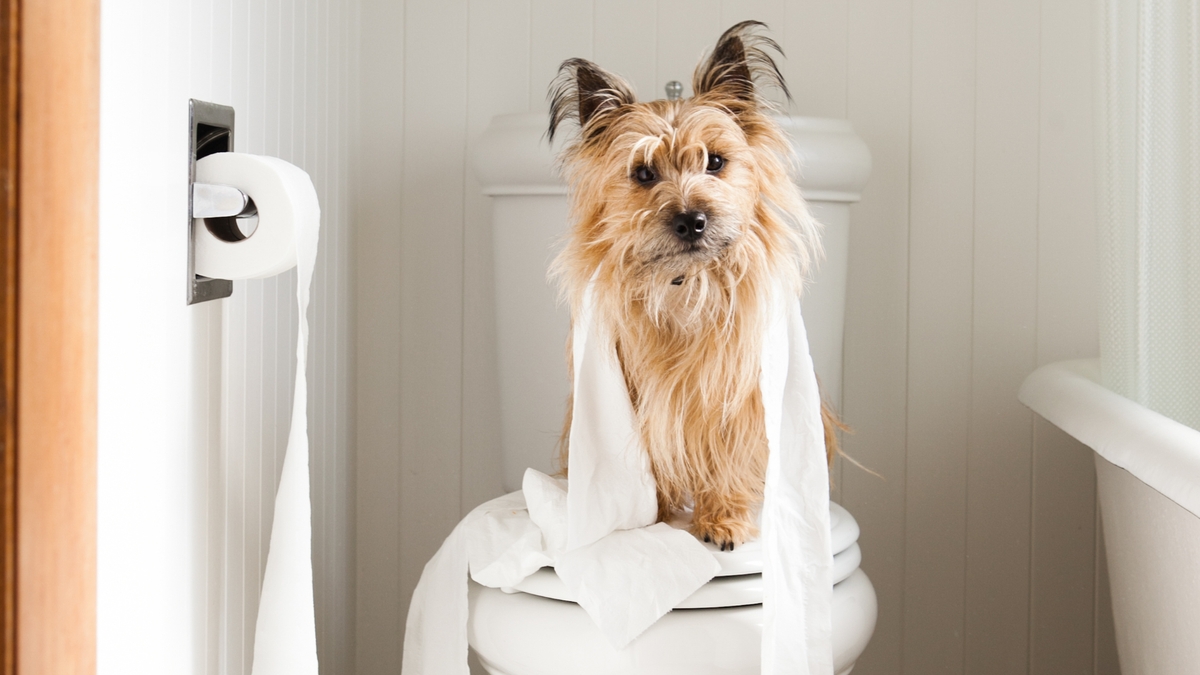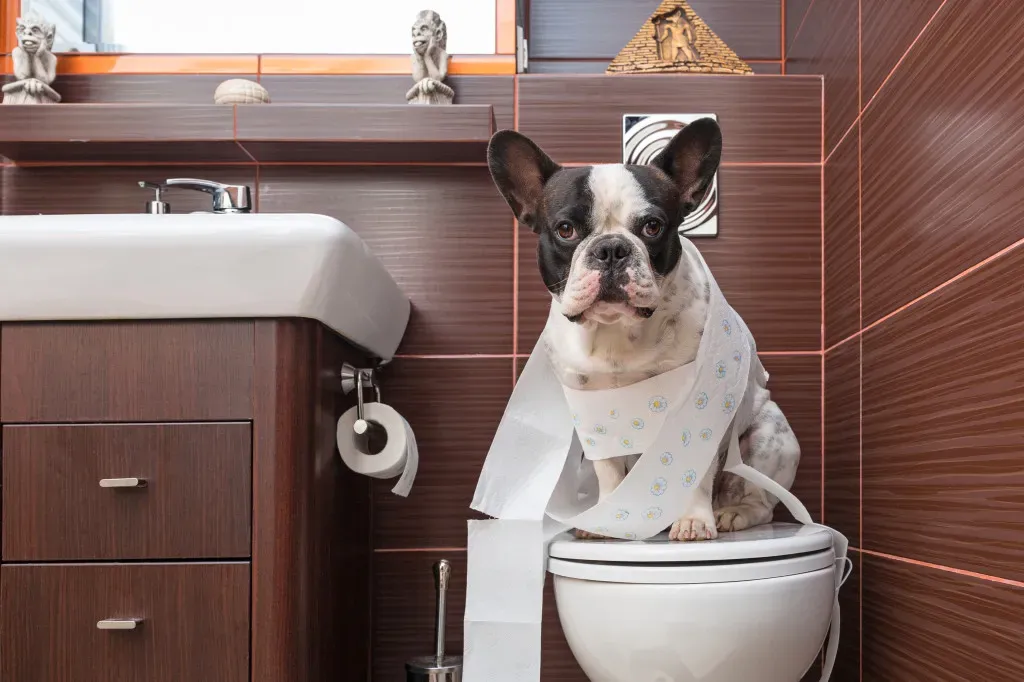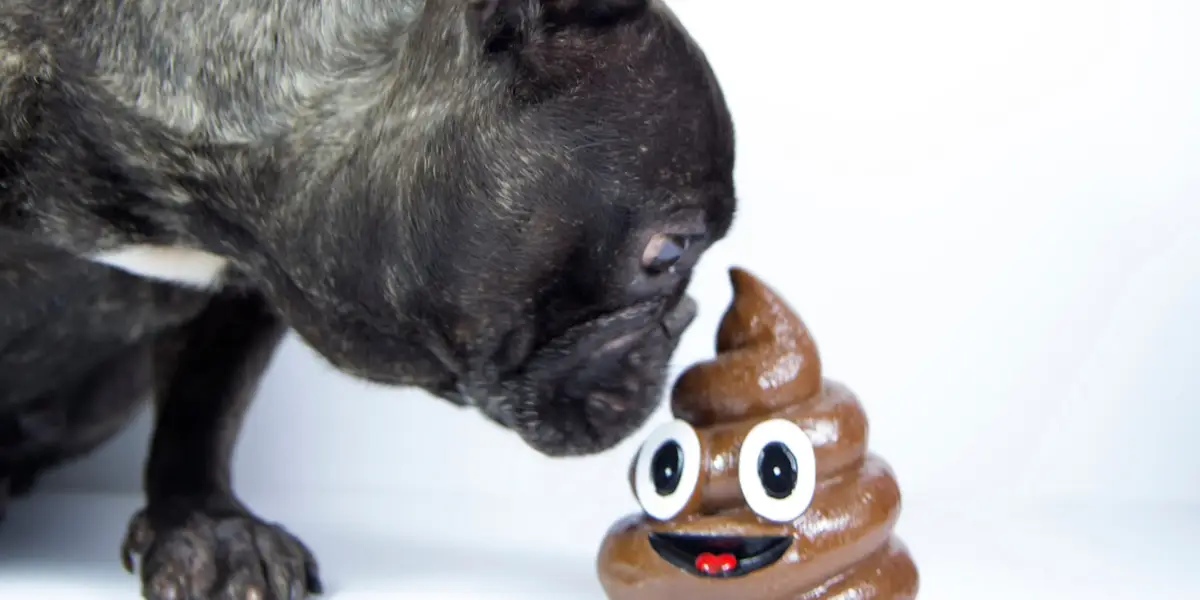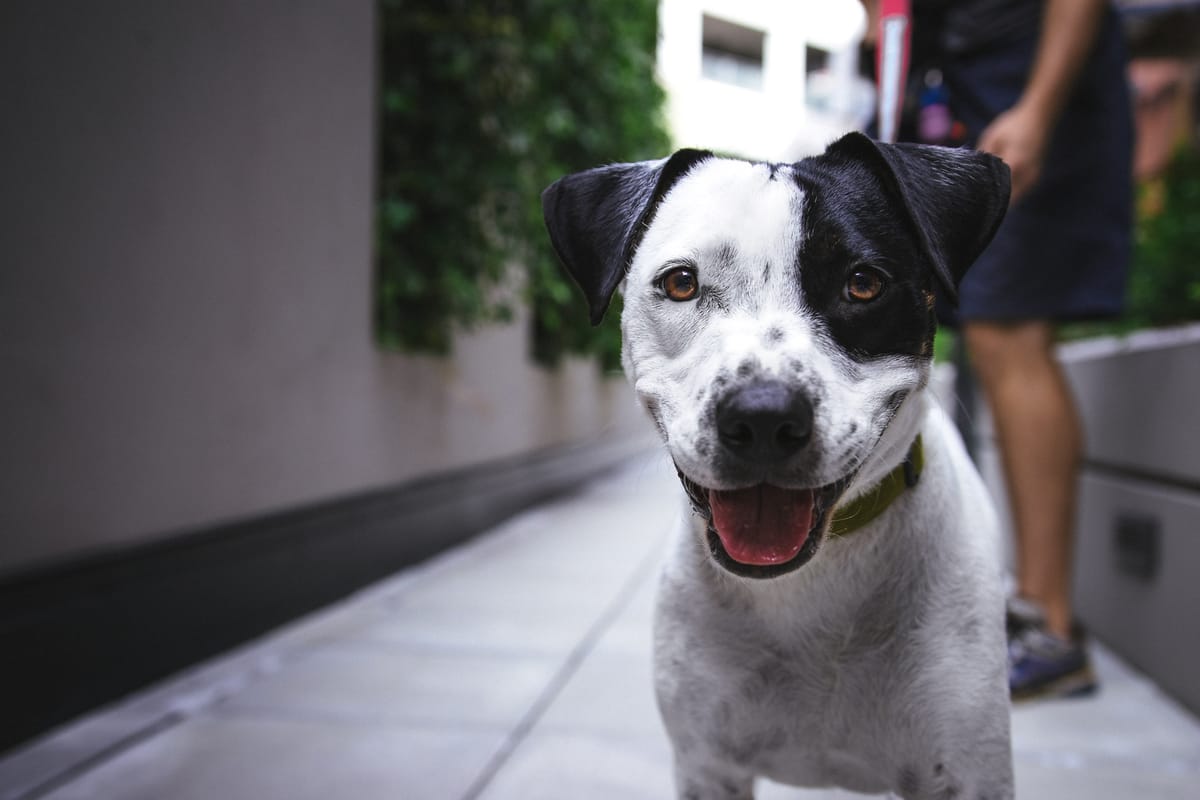The color and consistency of a dog’s poop can provide valuable insights into their overall health. While most dog owners are familiar with the typical brown color of dog feces, it can be concerning to see a change in color, such as orange. A dog poop color chart can be a useful tool for dog owners to quickly reference and understand the health indicators in their dog's stool. In this comprehensive guide, we will explore the possible reasons why your dog’s poop may be orange and what it could indicate about their well-being.

We will discuss various factors that can contribute to orange stool, including diet, medication, and underlying health conditions. By understanding the potential causes and seeking appropriate veterinary care when necessary, you can ensure your dog’s optimal health and well-being.
The Basics of Dog Poop
Normal Characteristics of Dog Poop
Normal dog poop varies in color, consistency, and odor depending on factors such as diet, hydration, and overall health. Typically, healthy dog poop is brown in color, formed, and has a mild odor. The texture may range from firm to slightly soft, making it easy to pick up. Dog poop consistency is an important indicator of digestive health; it should be compact, moist, and easy to handle. The frequency of bowel movements can vary from dog to dog, but once or twice a day is considered normal. It’s important to become familiar with your dog’s normal poop characteristics so that you can quickly identify any changes or abnormalities.
What Color Is Normal for Dog Poop?
The normal color of dog poop is brown, which is a result of the digestion process and the presence of bile. Monitoring your dog's stool is crucial for identifying health indicators and ensuring their well-being. The brown color is primarily due to the breakdown of red blood cells and the pigment called bilirubin. However, it’s essential to note that slight variations in color can be considered normal. For example, a slightly darker or lighter shade of brown is usually not a cause for concern. It’s when the color deviates significantly from the norm, such as turning orange, that it may indicate an underlying issue.
Factors Affecting the Color of Dog Poop
Several factors can influence the color of dog poop. A dog's diet can significantly impact the color and consistency of its poop. These include diet, hydration levels, medications, and underlying health conditions. Changes in color can be temporary and related to something the dog consumed or more persistent and indicative of an ongoing issue. Understanding the factors that can affect poop color can help identify potential causes and determine when further investigation or veterinary care is necessary.
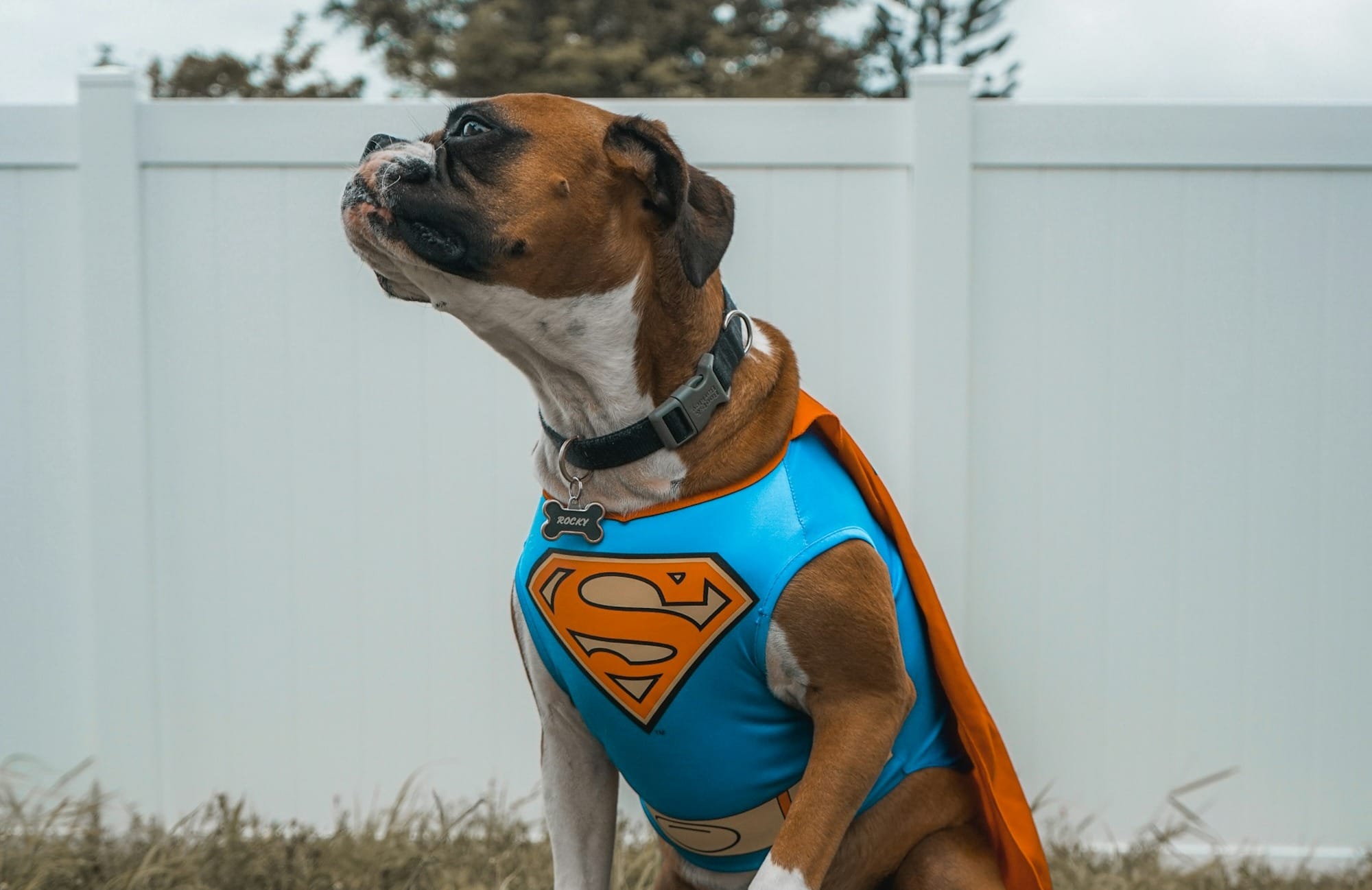
Causes of Orange Dog Poop
Orange dog poop can be caused by various factors, ranging from dietary changes to underlying health conditions. Monitoring stool color is crucial for maintaining your dog's health, as it can be an indicator of overall well-being. It’s essential to consider the possible causes and assess other factors, such as the dog’s behavior, appetite, and overall well-being, to determine the significance of the color change. Some potential causes of orange dog poop include diet and food coloring, ingestion of orange substances, medications and supplements, and underlying health conditions.
Diet and Food Coloring
A dog's food plays a significant role in their poop color. Certain food dyes and additives can result in orange-colored stool. If your dog has recently consumed food or treats with artificial coloring or ingredients like carrots or pumpkin, it can lead to temporary orange poop. Additionally, a sudden change in dog's food or introduction of new foods can also affect the color of the poop.
Ingestion of Orange Substances
Dogs are known for their curious nature and tendency to ingest things they shouldn't. If your dog has ingested orange-colored substances such as crayons, markers, or even certain plants, it can cause their poop to turn orange. It's important to be aware of your dog's environment and prevent access to potentially harmful items.
Medications and Supplements
Certain medications and supplements can affect the color of a dog's poop. For example, some antibiotics, antacids, or anti-inflammatory medications may result in orange stool. Additionally, supplements containing high levels of beta-carotene, such as those formulated for joint health or skin support, can also cause the poop to appear orange.
Underlying Health Conditions
In some cases, orange dog poop can be a sign of an underlying health condition. Black dog poop may indicate serious health issues such as internal bleeding or stomach ulcers. Conditions affecting the liver, gallbladder, pancreas, or gastrointestinal tract may impact the color and consistency of the stool. Disorders such as biliary and liver disorders, malabsorption issues and digestive disorders, inflammatory bowel disease (IBD), parasites and infections, and pancreatic disorders can potentially cause orange poop. If the orange color persists or is accompanied by other concerning symptoms, it’s crucial to consider the possibility of underlying health conditions.
Secure Your F1b Bernedoodle's Safety and Monitor Their Health with the Fi Dog Collar
As you keep up with your spirited F1b Bernedoodle's playtime and energy, consider enhancing your peace of mind with the Fi Dog Collar. Designed for the active and adventurous dog, the Fi Dog Collar is equipped with a state-of-the-art GPS tracker that ensures you can always pinpoint your furry friend's location.
Whether you're at home, at the park, or anywhere your playful pal might roam, the Fi Dog Collar lets you keep a vigilant eye on their movements. Plus, with its built-in activity monitor, you can ensure your Bernedoodle is getting just the right amount of exercise they need to stay healthy and happy. Try the Fi Dog Collar today and experience the ultimate in pet safety and wellness management.
Diet and Nutrition
The Role of Diet in Stool Color
Diet plays a vital role in the color and consistency of a dog's poop. It's important to provide a balanced and nutritious diet that meets your dog's specific nutritional needs. A diet rich in quality proteins, carbohydrates, fats, vitamins, and minerals contributes to healthy digestion and normal stool color. Ensuring that your dog's diet is well-rounded and appropriate for their age, breed, and any specific dietary requirements can help maintain optimal digestive health.
Foods That Can Cause Orange Stool
Certain foods can contribute to orange-colored poop in dogs. These include foods high in beta-carotene, such as carrots, sweet potatoes, and pumpkin. While these foods are generally healthy and safe for dogs, they can temporarily affect the color of their stool. If you have recently introduced these foods into your dog's diet or have been feeding them in larger quantities, it's not uncommon to observe orange poop.
Dietary Changes and Stool Color
Abrupt changes in your dog’s diet can lead to digestive upset and changes in stool color. As a responsible dog owner, it is crucial to monitor and understand these changes in stool color to ensure your pet's overall health. If you have recently switched your dog’s food or introduced new treats or supplements, it can affect their digestion and result in temporary orange poop. It’s important to introduce dietary changes gradually and monitor your dog’s response to ensure a smooth transition.
Ensuring a Balanced and Nutritious Diet
To maintain optimal digestive health and normal stool color, it's crucial to provide your dog with a balanced and nutritious diet. Consult with your veterinarian to determine the best diet for your dog based on their age, breed, activity level, and any specific health considerations. High-quality commercial dog food or a properly balanced homemade diet can provide the essential nutrients your dog needs for healthy digestion and consistent stool color.
Medications and Supplements
Medications That Can Affect Stool Color
Certain medications can influence the color of a dog's poop. For example, antibiotics may alter the balance of bacteria in the digestive tract, leading to changes in stool color. Nonsteroidal anti-inflammatory drugs (NSAIDs) and certain pain medications can also impact the digestive system and result in color changes. If your dog is on any medications, it's essential to be aware of potential side effects, including changes in stool color.
Common Supplements and Stool Color Changes
Supplements, such as those containing iron or certain herbal extracts, may affect the color of a dog’s poop. Green dog poop may be caused by supplements containing chlorophyll or certain plant extracts. Iron supplements can cause the stool to appear darker or even black. Other supplements, such as those containing chlorophyll or certain plant extracts, may cause the stool to take on a greenish hue. It’s important to follow recommended dosages when administering supplements to your dog and consult with your veterinarian if you notice significant changes in stool color.
Potential Side Effects and Concerns
While medications and supplements can have therapeutic benefits, they can also come with potential side effects. Stool color changes can sometimes indicate a reaction to a medication or supplement. If your dog experiences other symptoms, such as vomiting, diarrhea, or lethargy, along with orange-colored poop, it's important to consult your veterinarian for further evaluation and guidance.

Biliary and Liver Disorders
Biliary and liver disorders can affect the production and flow of bile, which is essential for proper digestion. Grey dog poop may indicate biliary or pancreatic problems and should prompt a visit to the vet. Conditions such as liver disease, gallstones, or infections can lead to changes in stool color, including orange. If your dog has a biliary or liver disorder, they may exhibit other symptoms, such as loss of appetite, weight loss, jaundice (yellowing of the skin and eyes), and fatigue.
Malabsorption Issues and Digestive Disorders
Malabsorption issues and digestive disorders can interfere with the absorption and breakdown of nutrients, leading to changes in stool color. Conditions such as exocrine pancreatic insufficiency (EPI), where the pancreas fails to produce enough digestive enzymes, or celiac disease, an autoimmune disorder affecting the small intestine, can cause orange-colored stool. Dogs with malabsorption issues may experience weight loss, diarrhea, and poor coat condition in addition to the changes in stool color.
Inflammatory Bowel Disease (IBD)
Inflammatory bowel disease (IBD) is a chronic condition characterized by inflammation of the gastrointestinal tract. Dogs with IBD may have difficulty properly digesting food, resulting in changes in stool color and consistency. While IBD can cause various stool color changes, including orange, it is often accompanied by other symptoms such as chronic diarrhea, vomiting, and weight loss. It's important to work with your veterinarian to diagnose and manage IBD effectively.
Parasites and Infections
Certain parasites and infections can affect the digestive system and lead to changes in stool color. The presence of blood in dog poo may indicate bowel problems or trauma and should be examined by a veterinarian. For instance, giardia, a common intestinal parasite, can cause orange diarrhea in dogs. Other infections, such as bacterial or viral gastroenteritis, can also result in stool color changes. It’s crucial to ensure your dog is on a regular parasite prevention program and promptly treat any infections to prevent complications and resolve the issue.
Pancreatic Disorders
Disorders of the pancreas, such as pancreatitis or pancreatic tumors, can disrupt the normal digestive processes and impact stool color. Yellow dog poop may indicate a digestive issue or food intolerance, often signified by a mustard yellow color with mucus. Pancreatitis, an inflammation of the pancreas, can cause orange or greasy-looking stool in dogs. Pancreatic tumors may obstruct the flow of bile or interfere with the production of digestive enzymes, resulting in changes in stool color. Dogs with pancreatic disorders may experience symptoms such as abdominal pain, vomiting, and loss of appetite.
When to Seek Veterinary Care
Monitoring Your Dog's Poop
Regularly monitoring your dog's poop is an essential part of responsible pet ownership. By observing the color, consistency, and frequency of their stool, you can quickly identify any changes that may indicate an underlying issue. It's important to establish a baseline of what is normal for your dog's poop, so you can readily recognize abnormalities.
Signs of Concern
While occasional instances of orange poop may not be cause for immediate alarm, certain signs warrant veterinary attention. If the orange color persists for more than a day or two, is accompanied by other concerning symptoms such as vomiting, diarrhea, lethargy, loss of appetite, or if your dog appears unwell, it's important to consult with your veterinarian.
Consulting with a Veterinarian
If you notice persistent or recurrent episodes of orange poop, it's best to consult with your veterinarian. They can perform a thorough examination, take a detailed medical history, and conduct diagnostic tests to determine the underlying cause. Veterinary expertise is crucial in identifying and addressing any health issues contributing to the change in stool color.
Diagnostic Tests and Examinations
To determine the cause of orange poop, your veterinarian may recommend diagnostic tests. These may include fecal analysis to check for parasites or infections, blood tests to assess organ function and detect any abnormalities, imaging studies like ultrasound or X-rays to evaluate the gastrointestinal system, or even endoscopy or biopsy to examine the digestive tract more closely.
Treatment and Management
If the orange poop is attributed to dietary factors, such as food coloring or recent dietary changes, adjusting the diet can help resolve the issue. Your veterinarian may recommend transitioning to a different food, eliminating specific ingredients, or providing additional dietary supplements to restore normal stool color. It's important to follow your veterinarian's guidance and make gradual dietary changes to avoid further digestive upset.
Adjusting Medications and Supplements
If medications or supplements are the suspected cause of orange poop, your veterinarian may suggest adjusting the dosage, switching to an alternative medication, or discontinuing certain supplements. They will carefully evaluate the benefits versus the potential side effects of these medications or supplements and make appropriate recommendations to restore normal stool color.
Treating Underlying Health Conditions
If an underlying health condition is identified as the cause of orange poop, treatment will focus on managing and addressing that specific condition. The treatment plan will vary depending on the diagnosed condition and may involve medications, dietary modifications, lifestyle changes, or even surgery in more severe cases. It's essential to follow your veterinarian's instructions and attend regular follow-up appointments to monitor your dog's progress and make necessary adjustments to the treatment plan.
Maintaining Regular Veterinary Check-ups
Regular veterinary check-ups are crucial for the overall health and well-being of your dog. These routine visits allow your veterinarian to assess your dog's general health, monitor any ongoing conditions, and detect early signs of potential issues. During these visits, you can discuss any concerns about stool color or other digestive changes and receive guidance on maintaining optimal digestive health for your dog.
Preventive Measures and Lifestyle Changes
Prevention is key to maintaining your dog's digestive health. Ensure that your dog receives a balanced and nutritious diet that meets their specific needs. Avoid feeding them foods with excessive artificial coloring or ingredients that may cause digestive upset. Implement a regular exercise routine to promote healthy digestion and overall well-being. Additionally, follow proper medication administration guidelines and provide adequate hydration to support optimal digestive function.
Preventive Measures and Healthy Habits
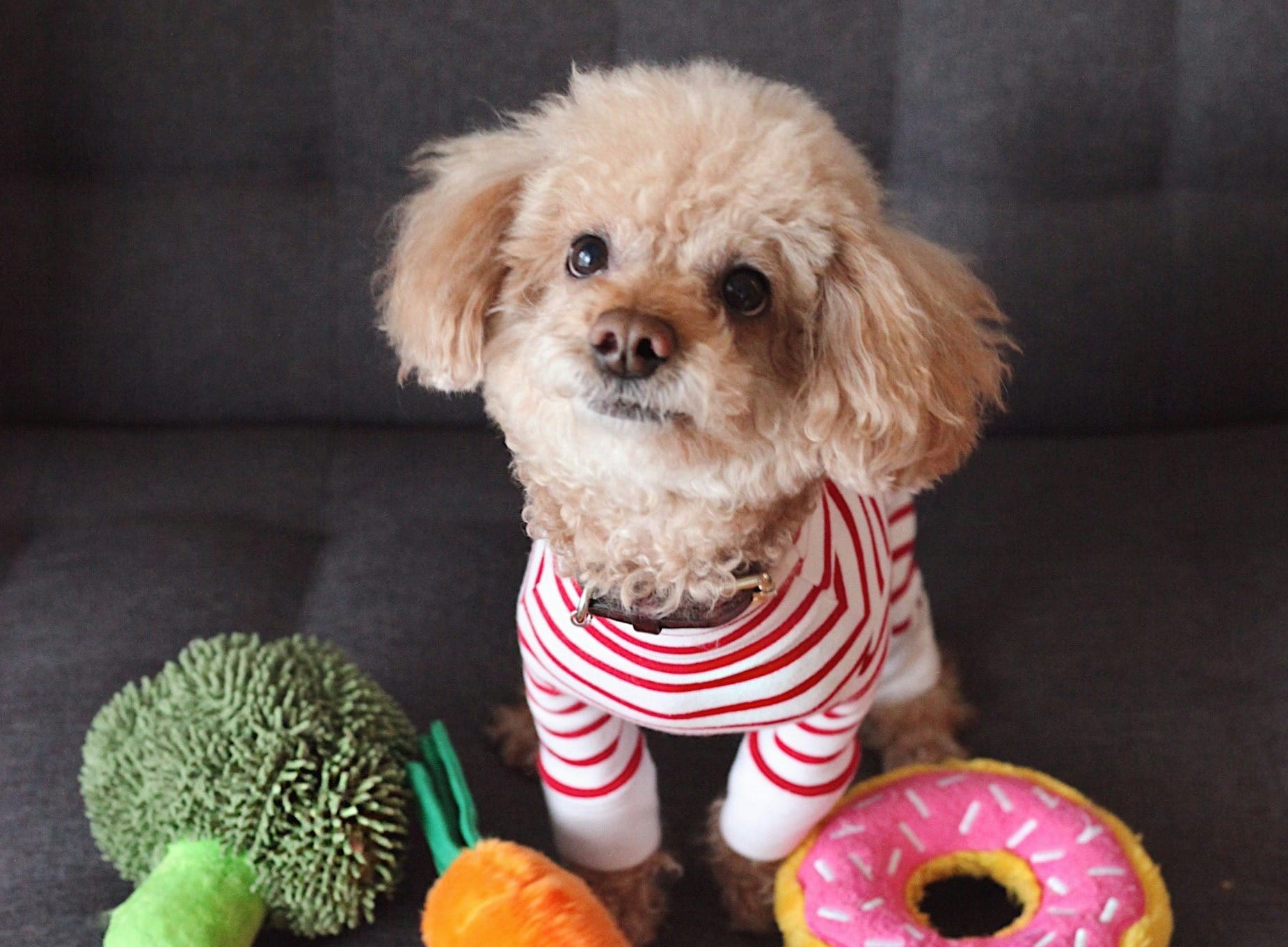
Providing a Balanced and Nutritious Diet
A balanced and nutritious diet is essential for your dog's overall health, including their digestive system. Ensure that their diet includes high-quality proteins, carbohydrates, fats, vitamins, and minerals. Consult with your veterinarian to determine the appropriate diet for your dog based on their age, breed, activity level, and any specific dietary requirements. Avoid sudden dietary changes and introduce new foods gradually to prevent digestive upset.
Ensuring Adequate Hydration
Proper hydration is vital for maintaining healthy digestion. Ensure that your dog has access to clean and fresh water at all times. Adequate hydration helps soften the stool and promotes regular bowel movements. Monitor your dog's water intake and consult with your veterinarian if you notice any changes in their drinking habits or signs of dehydration.
Regular Exercise and Physical Activity
Regular exercise and physical activity are beneficial for your dog's digestive health. Physical movement stimulates intestinal motility, aiding in the proper passage of food through the digestive system. Engage your dog in daily exercise routines, such as walks, playtime, or interactive games, to promote healthy digestion and prevent constipation or other digestive issues.
Proper Medication Administration
If your dog requires medications or supplements, it's essential to administer them correctly. Follow the prescribed dosage instructions provided by your veterinarian and ensure that medications are given with or after meals, as instructed. Some medications may need to be given with water or food to prevent digestive irritation. If you have any concerns or difficulties with medication administration, consult your veterinarian for guidance.
Regular Veterinary Care and Monitoring
Regular veterinary care is vital for maintaining your dog's overall health and detecting any potential issues early on. Schedule routine check-ups with your veterinarian, and adhere to their recommended vaccination and deworming schedules. During these visits, discuss any concerns or changes in your dog's stool color, behavior, or overall well-being. Your veterinarian can perform routine examinations, conduct necessary tests, and provide preventive care to ensure your dog's digestive health is in optimal condition.
When to be Alarmed
Red Flags for Serious Conditions
While orange-colored poop in dogs can often be attributed to benign factors like diet or medication, certain red flags warrant immediate veterinary attention. If your dog's stool is consistently bright orange, bloody, black, tarry, or accompanied by severe diarrhea, vomiting, abdominal pain, lethargy, or loss of appetite, it may indicate a more serious underlying condition. These symptoms could be associated with gastrointestinal bleeding, organ dysfunction, or other critical health issues, and should not be ignored.
Acute Symptoms Requiring Immediate Veterinary Attention
In some cases, the presence of orange poop may be accompanied by acute symptoms that require urgent veterinary care. If your dog is experiencing severe dehydration, inability to defecate, severe abdominal pain, or any signs of distress, it is crucial to seek immediate veterinary attention. These symptoms may indicate a blockage, intestinal obstruction, or a severe gastrointestinal issue that requires prompt medical intervention.
Trusting Your Instincts as a Pet Owner
As a responsible pet owner, it's important to trust your instincts when it comes to your dog's health. If you notice significant changes in your dog's behavior, appetite, energy levels, or if something just doesn't seem right, don't hesitate to consult with your veterinarian. You know your dog best, and early detection and intervention can often make a significant difference in their health outcomes.
Remember, while orange-colored poop in dogs can be caused by various factors, it's essential to monitor your dog's stool regularly, seek veterinary guidance if you have concerns, and follow the recommended preventive measures to maintain their digestive health. By being proactive and attentive to changes in stool color and associated symptoms, you can help ensure your dog's overall well-being and promptly address any underlying issues that may arise.
Conclusion
In conclusion, the color of your dog's poop can provide valuable insights into their digestive health. While orange poop in dogs can be alarming, it is often a result of harmless factors such as diet, food coloring, or certain medications. However, it's important to pay attention to any persistent or concerning changes in stool color, consistency, or accompanying symptoms.
By understanding the causes and implications of orange poop in dogs, you can take appropriate action to address the issue. This includes evaluating your dog's diet, ensuring they receive a balanced and nutritious meal, and avoiding foods that may cause stool color changes. If your dog is on any medications or supplements, consult with your veterinarian to understand potential side effects or interactions that may affect their stool.
FAQs
- What causes orange poop in dogs?
- Orange poop in dogs can be due to dietary factors, such as food coloring or high beta-carotene foods (carrots, pumpkin), ingestion of orange-colored items, certain medications or supplements, and underlying health conditions affecting the digestive system.
- Is orange dog poop a sign of a serious health issue?
- While it can be related to simple dietary changes, persistent orange poop, especially if accompanied by other symptoms (vomiting, diarrhea, lethargy), may indicate a more serious health condition and warrants veterinary consultation.
- Can a change in diet cause my dog's poop to turn orange?
- Yes, sudden dietary changes or the consumption of foods high in beta-carotene or artificial colors can cause temporary changes in stool color, including orange poop.
- Should I be worried if my dog's poop is orange?
- Occasional orange poop isn't typically alarming. However, if it persists for more than a couple of days or is accompanied by other concerning symptoms, it's best to consult a veterinarian.
- What should I do if my dog's poop is orange?
- Monitor your dog's health and behavior closely. If the orange color continues, assess their diet for potential causes and consult a veterinarian for a thorough examination and advice.
- How can diet affect the color of my dog's poop?
- The color of your dog's poop can be influenced by the ingredients and coloring in their food. Ingredients rich in beta-carotene, like carrots and pumpkin, can result in orange stool.
- Can medications change the color of my dog's poop?
- Yes, some medications, including antibiotics and anti-inflammatory drugs, can alter the gut flora or have side effects that change stool color.
- What health conditions might cause orange poop in dogs?
- Conditions affecting the liver, gallbladder, pancreas, or gastrointestinal tract, such as biliary disorders, pancreatitis, or infections, can lead to orange-colored stool.
- How is orange dog poop diagnosed and treated?
- Diagnosis involves a thorough veterinary examination, medical history review, and possibly diagnostic tests (fecal analysis, blood tests, imaging). Treatment depends on the underlying cause and may include dietary adjustments, medication changes, or specific treatments for identified health conditions.
- How can I prevent my dog's poop from turning orange?
- Ensure a balanced diet without excessive artificial colors, gradually introduce dietary changes, avoid giving your dog non-food items that could be ingested, and maintain regular veterinary check-ups for health monitoring.
Want to know more about Dog Poop?
